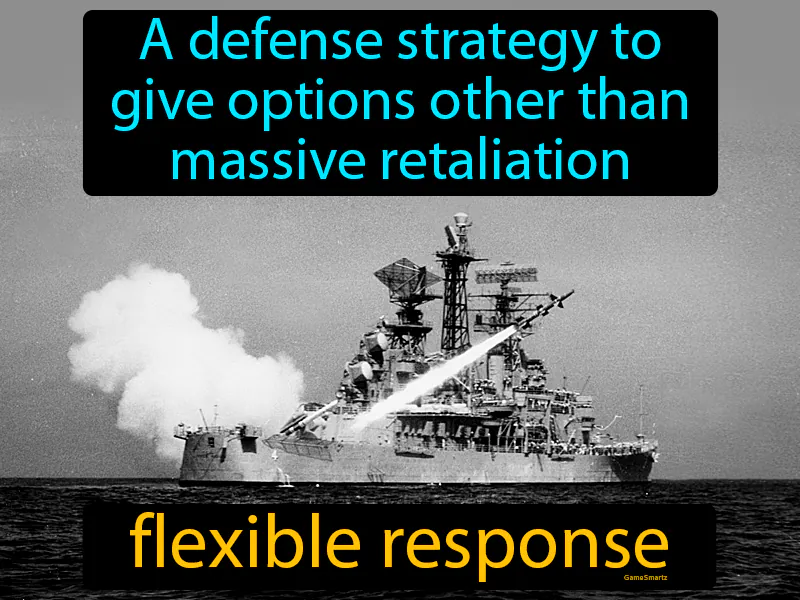Flexible Response
Flexible Response: Easy to understand
The concept of flexible response during the Vietnam War allowed the United States to use a range of military and non-military strategies instead of relying solely on nuclear weapons. This approach was important because it provided more options to manage conflicts and avoid the catastrophic consequences of massive retaliation. It addressed the need for adaptable strategies in the face of unpredictable threats and complex global situations. Today, flexible response still matters because it emphasizes the importance of having multiple solutions to problems, rather than just one extreme option. For example, if you're having a disagreement with a friend, flexible response means considering multiple ways to resolve it, like talking it out, seeking a compromise, or even taking a break, rather than just ending the friendship abruptly.

Practice Version

Flexible Response: A defense strategy to give options other than massive retaliation. Flexible response. It was a Cold War military strategy that allowed for a variety of responses to threats, instead of relying solely on nuclear retaliation.